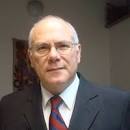Nestor is currently a professor of sociology at Rio Hondo College, in Whittier, CA. During the 1970s, Nestor was a worker and a student in his native Argentina when he was arrested during the so called ‘Dirty War.’ During that period of time, Argentines were kidnapped, tortured in concentration camps, babies were stolen, people were thrown from planes into the waters of Atlantic Ocean, and 30,000 Argentines ‘disappeared.’ Amnesty International adopted Nestor as a Prisoner of Conscience and in 1980, after 4 years in various political prisons, he was released and allowed to leave the country.
Nestor’s presentation will share his experiences in those challenging years, and caution his fellow Americans against the temptation of adopting and/or supporting policies and methods in the Global War on Terrorism that contradict fundamental human rights principles promoted by our Founding Fathers and established in our Constitution and institutions.
Many thousands of people are still missing from those days, from Argentina’s “dirty war” of the 1970s. By some estimates, 30,000 are missing. Fantini saw some of his fellow political prisoners shot. Others were taken from their cells and just never came back.
Although he didn’t know it, during his first year in prison, people were organizing on his behalf. His mother and sister, who were living in Brazil, were desperately calling every human-rights group they could find. A small group of Amnesty volunteers in Texas, led by a graduate student named Mary Evelyn Porter, also wrote letters, called their senators, kept a vigil for a young man named Nestor Fantini, a young man they were not sure was alive.
At the end of his first year of captivity, he was moved to another political prison. A Red Cross worker was allowed to interview him. And then a few months later, he was moved again, this time to a prison near Buenos Aires. Here he was actually allowed to have a book in his cell. With each move, his hope grew. He was sure people in the outside world knew where he was. He felt safer, knowing the government might be embarrassed if he died.
When he was finally released, he was still a political prisoner. He couldn’t leave the country. So Mary Evelyn Porter came to Argentina to meet him. She came back the next year. Eventually, Fantini was allowed to leave and he chose to go to Canada, where a program for political prisoners offered him an education.
Topics: Service

